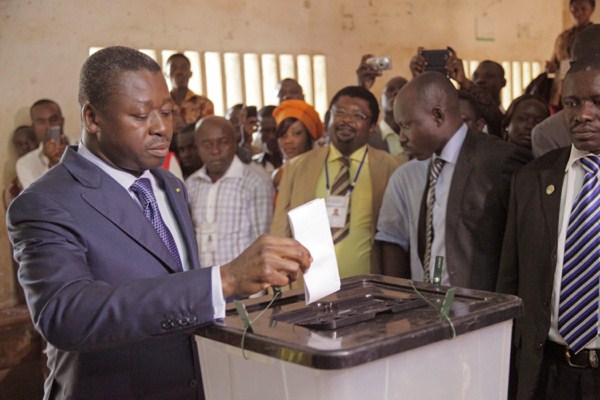On April 15, exactly 18 days before the end of President Faure Essozimna Gnassingbe’s second term in office, Togo will go to the polls to elect its next head of state. In power since the death of his father, Gen. Eyadema Gnassingbe, in 2005, Gnassingbe will be running for a third term as president. Though permitted by the 2002 constitution passed by his father, which removed presidential term limits, his candidacy is nevertheless contested by the opposition, concerned by what it calls the “confiscation of power” by a man whose family has ruled the country for over 40 years.
During the rule of the elder Gnassingbe, who came to power in 1967 after a bloody military coup, Togo’s political history was marked by repression, repeated massacres and limited political competition. After his father’s death in February 2005, Faure was brought to power by the military and briefly headed the transition before resigning and running in a presidential election held two months later. That election was marred by alleged fraud and electoral violence resulting in over 500 deaths. Since then, taking a page from his father’s playbook, Faure has managed to keep a grip on power by maintaining a strong representation for the Kabye ethnic group in key government institutions.
Now, inspired by the 2014 popular unrest in Burkina Faso that ousted that country’s long-serving president, Blaise Compaore, the Togolese opposition has organized regular marches throughout the country since November 2014 calling for Faure to forego seeking a third presidential term. Their demand is further supported by a 2014 Afrobarometer survey in which 85 percent of Togolese approved of a two-term presidential limit.

